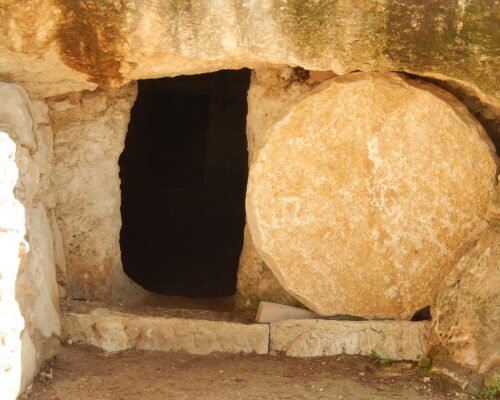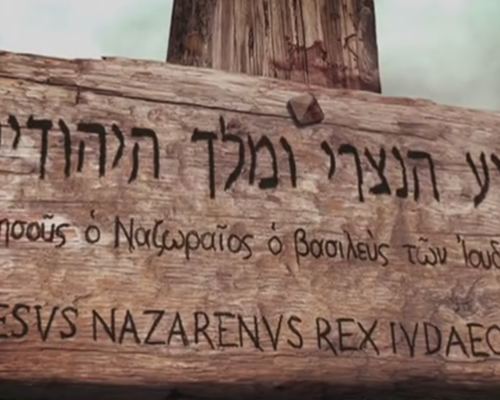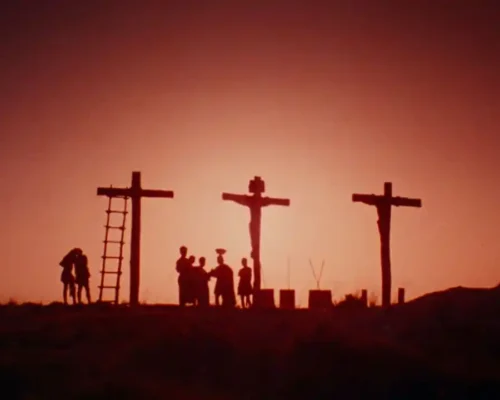Luke 23:1–5 (ESV) – Then the whole company of them arose and brought him before Pilate. And they began to accuse him, saying, “We found this man misleading our nation and forbidding us to give tribute to Caesar, and saying that he himself is Christ, a king.” And Pilate asked him, “Are you the King of the Jews?” And he answered him, “You have said so.” Then Pilate said to the chief priests and the crowds, “I find no guilt in this man.”
Not guilty. Those are the words that every accused wants to hear. To be set free from captivity and have your future still in front of you. It must be an overwhelming sense of relief. To have your hands in the fate of another, and then have it released. Oh what joy must fill your heart. I watch enough real life crime shows to know what I am talking about. The look on people’s faces when they hear those two, beautiful words – not guilty.
Jesus heard those words. From the man who mattered most. Pontious Pilate, governor from Rome, the man who held all the cards utters them almost immediately upon meeting Him. In fact he’s so quick to acquit, that the crowds grow even more angry, and demand Jesus be sent to a higher authority. And so not guilty, in that moment no longer mattered. He was on His way to Herod for yet another trial.
Pilate hadn’t even been the first. In less than 12 hours Jesus has now stood before three judges of sort. Pilate, of course, but the first, His main accuser Caiaphas the High Priest. An illegal trial in the middle of the night had yielded no results, as the religious leaders feared getting their hands dirty as much as they feared losing their power – and so off to Pilate He had gone. False witness, false accusations, false pretense – all supposedly in the name of God.
Herod didn’t know what to do with Him either, so he took the easy way and dressed Him in mockery and held him in contempt. They spit and cursed, yelled and ridiculed – but in the end could find no fault in Him as well. Three trials. Three chances at freedom. Three opportunities for Him to plead His case. He had barely uttered a word. No one wanted to pull the proverbial trigger, and so the torch is passed again.
By the time Jesus winds up in front of Pilate again, it is morning, and the crowds are growing restless. They have been filled with lies and rage by Caiaphas and his henchmen, and they will settle for nothing less than blood. But Pilate has a plan. Once a year a prisoner can be released with no repercussions. He will offer up Jesus and Barabbas, a murder and thief. Surely they will come to their senses. They could and would not choose such a violent criminal over a man whose only supposed crime is His claim to the be the Messiah.
“Jesus, or Barabbas?”
Pilate asks with a heart filled with hope and fear. His wife has had a dream, and now warns him that Jesus has the favor of the gods. He now wants even less to do with ending this man’s life.
“Barabbas! Give us Barabbas!”
“What then with Jesus?”
“Crucify.”
A third time we hear the words, as Pilate literally washes his hands and hands Jesus over to those who will take Him to his death. Not guilty.
Matthew 27:24–26 (ESV) – So when Pilate saw that he was gaining nothing, but rather that a riot was beginning, he took water and washed his hands before the crowd, saying, “I am innocent of this man’s blood; see to it yourselves.” And all the people answered, “His blood be on us and on our children!” Then he released for them Barabbas, and having scourged Jesus, delivered him to be crucified.
On a hill down the road, at the place called “The Skull,” a crowd is gathering. Gathering to watch the least guilty man who has ever lived, pay the price for the guilt of all mankind. He will walk the road to Calvary, carrying the burden of your sin and mine, stumbling, falling, failing and crumbling – nearly crushed underneath its weight. There, He will lay down His life, willingly, submissively, sacrificially and allow Himself the penalty of death.
Three trials. Three verdicts. Three times – not guilty. And still He walks. The not guilty, for the guilty – paying the price that only innocence could bear.




